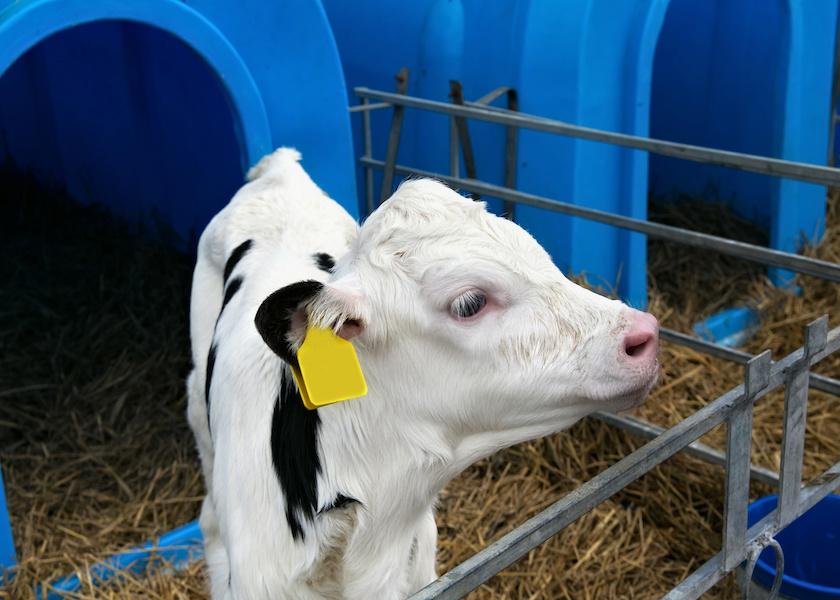Watch Calves Carefully for Dehydration Signs

Scours can cause severe dehydration in calves, but heat stress can, too – even in otherwise healthy calves.
Calves’ systems attempt to regulate their body temperature at a steady 101.5-102.5°F, regardless of ambient temperature. When the mercury rises, calves’ energy requirements may go up 20-30% as they attempt to keep their bodies cool, according to Jennifer Bentley, Extension Dairy Specialist at Iowa State University.
That metabolic process also is fueled by water. Bentley said healthy calves under heat stress will drink between 6 and 12 quarts of water daily just to maintain normal hydration. When hydration status falls behind, early warning signs – in addition to increased water intake -- include:
- Reduced activity
- Faster respiratory rate
- Open-mouth panting
- Decreased feed intake
Penn State University Extension dairy advisors say fluid loss in excess of 8% requires IV treatment, and over 14% can result in death. They advise observing calves for heat stress and evaluating their degree of dehydration using the following guidelines:
- 5-6% dehydration – Diarrhea but no other clinical signs; suckling reflex still strong.
- 6-8% dehydration – Mild depression, “tented” skin at the neck takes 2-6 seconds to flatten; sunken eyes; calf still suckling but weak.
- 8-10% dehydration – Calf depressed; lying down; eyes very sunken; dry, pale gums; tented skin takes more than 6 seconds to flatten.
- 10-14% dehydration – Calf will not stand; cool extremities; skin won’t flatten when tented; comatose.
- Over 14% dehydration – Death.
To rescue mildly dehydrated calves, the Penn State experts recommend feeding oral electrolyte solution using a formula to calculate the required rate of:
Weight of the calf X (dehydration %/100) ÷ 2 = daily quarts of electrolyte solution needed
So, a 100-pound calf that is 6% dehydrated would need 3 quarts of electrolyte solution per day, and an 80-pound calve that is 5% dehydrated would need 2 quarts. This is in addition to regular milk feedings, not in place of them.
Cool, free-choice water; shade; air movement; cool bedding (sand or shavings); fly control; and feeding more milk replacer all are cited by the experts as strategies to help calves navigate heat stress and avoid dehydration. Some calf raisers also report success from offering free-choice electrolyte solution during periods of extreme heat.
They also suggest delaying procedures like vaccination and dehorning until excessive heat passes, and remaining especially vigilant during periods of no night cooling.







